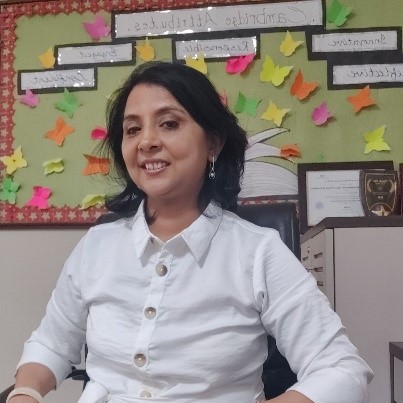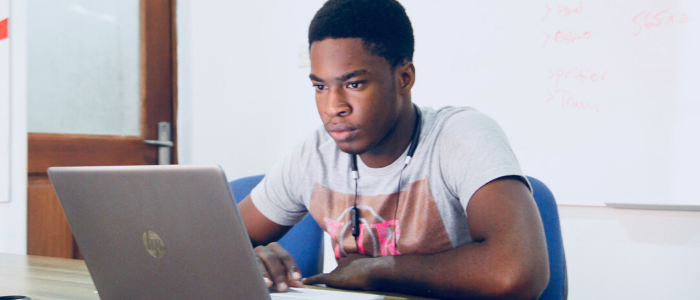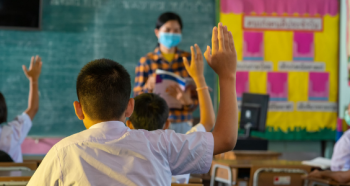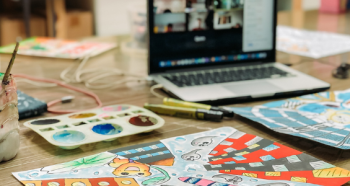Cambridge International works with 600 experienced practitioners around the world to help deliver our training programmes for both our syllabus-specific Introductory and Extension training , as well as our Enrichment Professional Development workshops. All our trainers go through a rigorous selection process and are regularly evaluated. We believe in supporting teachers and schools leaders to develop themselves continually as professionals, according to their needs and context.
We asked three Cambridge trainers from around the world to share their experiences on the impact Covid-19 is having on their teaching and learning.
Alka Pandey – Maharashtra, India

The past weeks have brought an unprecedented level of challenge, first the closure of schools, then the government directives on social isolation followed by complete lockdown for the whole nation. During these weeks our teachers have shown resilience and have been innovative in designing tasks primarily aimed at keeping the students motivated through these tough days of isolation.
But as the days progress, it is now evident that we need to move to well-formulated long-term plans for remote teaching.
As the head of my school and as a trainer, the challenges which I foresee are many. Many of our teachers are experimenting outside the physical classroom for the first time and are not going beyond video conferenced lectures supplemented by assignments shared through the school Learning Management System.
The teachers are also anxious about having to re-plan their lessons to support online delivery in a short space of time; not so much the content as they have enough experience and expertise to support it, but about the strategies to meet the challenges of online teaching and learning. Will the students have enough self-discipline to sit through a live lesson or to watch a video lesson all on their own? How will the teachers incorporate opportunities for collaborative interaction? In the absence of the chance to physically move around the class monitoring and prompting the students and watching their response, will the teachers lose the opportunities to reflect and analyse on their practice?
We all need to look at implementing online learning as the only solution for the coming few months at least. Our teachers are both excited and nervous and ready to take up the challenge. And the school is bracing itself to provide teachers with the technical support and training to make this shift successful. We encourage our teachers to make use of the tools and technology we have available such as using Skype and Zoom to make video calls and for lesson delivery, collaborate with each other on work-related documents using Microsoft Teams and utilise the extensive resources and knowledge being shared on the Cambridge School Support Hub and Cambridge webpage for Teaching and learning when school is closed. We are also planning to use Google Classroom for classroom collaboration, to log reports and to share assignments.
Steve Shannon – Florida, USA

I received a text from my older daughter on a Thursday afternoon informing me that her university was moving to online classes due to the Covid-19 virus and that she needed to move back home immediately.
I quickly developed a poetry revision exercise for my students to complete while I was helping my daughter move out of her dormitory the next day. Little did I know, I would not see my students face to face again this school year.
The suddenness with which the Covid-19 virus has brought the world to a stop is disorienting for all of us. For those of us who teach, or train, or do both, our challenges at times seem insurmountable. As a teacher of 26 years (17 as an AS/A Literature teacher), my approach to instruction has quickly had to undergo a transformation. Collaboration online will be different, discussion online will be different, and assessment online will be different. It is my experience as a trainer, though, that has provided me with the skills to deal with a time of uncertainty like the one we face now.
Experienced trainers all know the necessity of adaptability in the face of the uncontrollable. Whether we are faced with travel delays, materials and facilities limitations, or challenging delegates, the experienced trainer knows how to adapt, adjust, and accommodate.
My students are just now embarking on full-time online education. I am embarking on this journey with them, uncertain of how we will exactly arrive at our destination, but certain that we will because of my experiences through being a Cambridge trainer.
Babis Georgakainas – Zhangjiagang, China

The official announcement that the schools are opening again for students and teachers in China is the end of a period that nobody can easily forget. We all experienced many changes in our daily life, reconsidered values and priorities and adapted our standards according to rules and regulations which were updated almost every day.
Summarising the effects of schools’ lockdown, we should firstly mention the online teaching which was the main procedure in learning. Today, teachers and learners are more qualified as they developed new skills. Learning how to learn was more important than understanding the content. The educators had to search for digital resources and investigate ways for formative assessment. They tried hard to transform a lecture from a distance to an active and pleasant environment. They used tools to create quizzes, to demonstrate experiments, to add fun while teaching, proving how wise Albert Einstein’s phrase is that “Imagination is more important than knowledge”. Moreover, the students submitted their homework emailing photos of their notebooks and got constructive feedback all the time.
However, online learning cannot substitute the real classroom. School is not only gaining knowledge. It is a society in which teenagers grow up, make friends, play, gain experiences and add memories to their personal portfolio. There is no doubt that they will always remember these bizarre months and they will narrate stories about it to their children and grandchildren. They are celebrating with us and the rest of the educational community the return to school though. Everybody understands how important something is when we miss it. And we all missed our schools very much!





